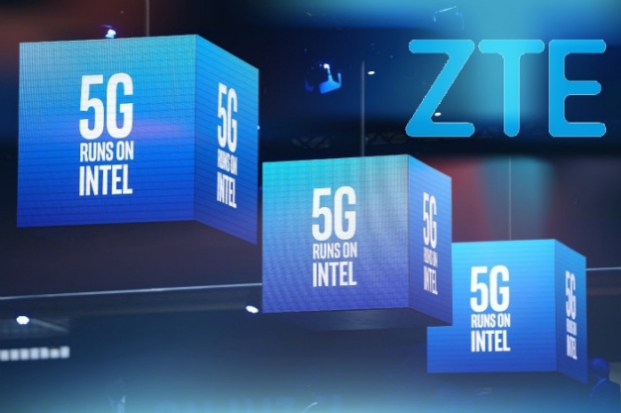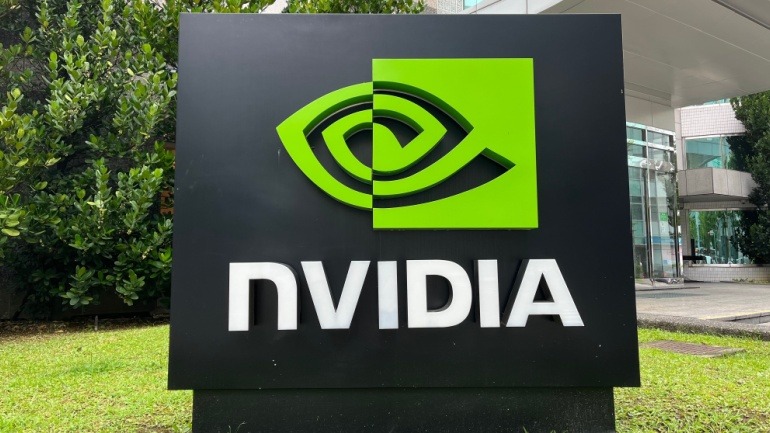ZTE Corporation and Intel have jointly launched the Light Cloud platform for access networks at the 5G Summit being held at Mobile World Congress 2019 in Barcelona. The Light Cloud solution is based on Intel’s innovative Edge products, impeccably integrated into ZTE’s flagship optical fiber access platform, Titan, thus merging Multi-access Edge Computing (MEC) and Network function virtualization (NFVI). The solution employs lightweight blade servers equipped with Intel Xeon D processors. When embedded in an OLT or BRAS device, the blade servers transform it into lightweight cloud infrastructure, thus reducing high capital costs and making a positive environmental impact. The infrastructure opens up computing and storage possibilities based on telecom access equipment, and allows the deployment and distribution of application-sensitive services. The access layer with cloud features is supported by built-in blade servers, and facilitates the ability to offer a wide range of cloud applications and services, including…
Verizon has announced a successful edge computing trial on a live 5G network, conducted using their newly formed 5G test bed in Houston. The company’s engineers used Multi-Access Edge Compute (MEC) equipment and MEC platform software, incorporated in a network facility closer to the network edge, and managed to decrease network latency by half. The test results are important for next generation networks, enabling 5G to support low-latency applications such as Virtual Reality (VR). Low latency refers to minimizing the round-trip time taken by data packets. This is an essential yet enormously challenging attribute for a 5G network, and its high performance requirements. At present, many mobile applications depend on cloud-based processing that is handled in centralized data centers, and the physical distances involved increase latency. According to Verizon, locating the computing power nearer to the users at the network edge significantly decreases the time to deliver services. …
Negotiations started recently between Microsoft and Apple on one side, and UAE Telecoms controllers on the other, in order to check if the ban on Skype and FaceTime could be lifted. As Hamad Al Mansoori, head of the TRA (Telecommunications Regulatory Authority), the “discussions are still ongoing”. According to arabic news Al Ittihad, those talks are a part of the two companies plan to extend their business in that part of the world. The goal of the UAE is to keep good relations with Microsoft and Apple, as the first is launching a data center in the UAE in order to cover the entire region. Etisalat and Emirates Integrated Communications have applications that offer similar features, called Botim and C’Me. Al Mansoori says that the number of people using those services are increasing. The main difference is that those apps are paid-for video applications. The telecoms in the UAE are…
When using a cloud PBX, customers have access to advanced features and enterprise-level functionality, while enjoying reduced infrastructure costs and minimized system administration concerns. However, you should diligently compare providers to ensure that you do not subscribe to a service that does not fit your needs and goals. This article lists some points to consider before committing to any hosted PBX phone service provider and should assist you in choosing a service that meets your communication needs. Are my feature set requirements satisfied? Before you start looking for a provider, you must compile a list of features that are essential to your business model and operational requirements, and also consider what features you might need in the future. In many cases, the cloud PBX provider charges for a specific set of features, or bills on a per-feature basis. Therefore, it may be useful to differentiate between “must have” features, and…
The VoIP industry is booming, and this has created a significant demand for DID (Direct Inbound Dialing) services and choosing a DID provider has become harder. Very often, these services are essential to the basic premise of the business or enterprise; incoming calls should reach their required destination efficiently with the proper quality and expected reliability. In all likelihood, voice support serves as the backbone for your business, and it is short-sighted to risk your reputation by exposing employees and consumers to a substandard voice product. Selecting a provider that satisfies your requirements for coverage, quality, scalability, and pricing is a complex issue, and some of the essential criteria to consider during this decision process are: Global Coverage Ensure that your DID provider includes the geographic coverage of numbers that you require for your business, including toll-free, local, mobile, national and SMS-enabled numbers. In addition, the provider should be actively…
Optus and Ericsson are introducing advanced 5G antennas in Australia, aiming to boost coverage while reducing energy use. Real-world tests show strong performance with lower power consumption. This partnership supports growing data demands and sustainability goals, ensuring reliable streaming, gaming, and video calls.
Ericsson has landed a significant contract with Bharti Airtel to manage its nationwide 4G and 5G network services in India through a centralized network operations center. This multi-year partnership will leverage AI-driven automation to efficiently manage 5G infrastructures, including non-standalone and standalone networks.
The UK government and NVIDIA have partnered to boost AI research in UK universities. Through new programs and a dedicated AI Technology Center, the collaboration aims to advance AI and 6G innovation, provide researchers with critical tools.
Amazon Web Services’ upcoming European Sovereign Cloud in Germany signals a strategic shift in VoIP and cloud services, ensuring stringent data sovereignty and regional control specifically for Europe. This move aligns AWS with local data requirements, emphasizing compliance, security, and reliability—critical factors for businesses and public entities relying on cloud technology.
Intelsat is expanding its satellite services in the Solomon Islands and India, improving rural connectivity and supporting broadcast networks. A new agreement with STCL brings better voice and data access to remote island communities, while India’s approval opens the door for expanded satellite coverage and content delivery using four geostationary satellites.













